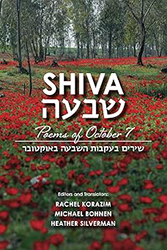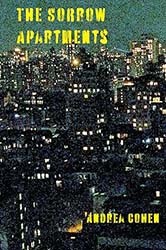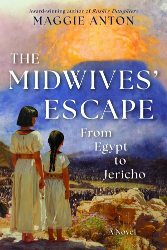In Amusing the Angels, poet Stewart Florsheim recalls his family’s history to reflect on ordinary moments in contemporary life. The book begins with a series of poems about the Holocaust that draw on footage from the documentary Three Minutes: A Lengthening as well as the journal entries his great-uncle wrote while aboard the infamous S.S. St. Louis ship. Both of these poems — “Jewish Quarter, Nasielsk, Poland, 1938” and “Journey Back” — relate the imminent dangers faced by the Jewish community at the start of the Holocaust. While later poems meditate on topics such as parenthood, the pandemic, and sensuality, the tone of these early Holocaust poems lingers as the book goes on.
In “Dropping Off My Two-Year-Old at Daycare,” “Making Pesto with My Daughter,” and “My Eight-Year-Old Is Learning Cursive,” Florsheim recounts memorable moments with his daughters during his early years of parenting. He considers small occasions that become significant without his anticipating them, like when he drops his daughter off at daycare. “I speed off to catch the 7:25 train,” he writes. “I can almost imagine I may never see her again / so I begin to count her freckles … / I keep fighting the urge I have to fall asleep.”
Many of Florsheim’s poems are ekphrastic, inspired by painters such as Amedeo Modigliani, Anders Zorn, Camille Pissarro, and Henri Matisse. In these poems, Florsheim imagines the lives of the people in the paintings, rendering their thoughts before, during, and after the work’s completion. Some of the moments in these paintings revolve around sexual tension and lustful imagery, while others are set during times of war. In his poem “Caesura,” which takes after the 1919 painting Tea by Henri Matisse, Florsheim writes:
The Treaty of Versailles just signed, the two women
sit under a chestnut tree in Issy-les-Moulineaux.
Marguerite talks about the repair work
that needs to be done on the house—
… She and Matisse plan to open a bottle of Bordeaux
they’ve been saving until the war ends.
There are also poems based on still-life paintings — including “Defining the Light” and “Still Life with Cat and Fish” — that differ from Florsheim’s other ekphrastic poems, in that they are very brief. Rather than presenting a narrative about characters in the painting, Florsheim’s still-life poems are more lyrical and imagistic. They use the five senses to describe moments of stillness, the peace and inaction before someone will enter the scene.
In between ekphrastic poems, Florsheim describes traveling as a Jew in Germany and Israel. He wonders at the ways in which the world has moved on from the Holocaust while not necessarily internalizing its victims’ pain. In “Perspectives: Germany,” he writes about seeing “a recent edition of Anne Frank’s diary on one shelf, / a new book about Hitler on the shelf below” and not being able to focus on anything in the store beyond the eerie smile of Anne situated above the scowl of Hitler.
Florsheim also deliberates on how the pandemic gave him opportunities to slow down and spend time in nature (which perhaps explains his attraction to centuries-old still-life paintings and portraits). In “Pandemic,” he writes,
I was taking a walk
through the neighborhood
and stopped when
I noticed
a hummingbird hovering
over a Bird-of-Paradise,
and for a moment
the earth fluttered.
The poems in Amusing the Angels are accessible, narrative, and image-driven. They touch on topics of the human condition and embrace the relationship between humans, nature, and art.
Jamie Wendt is the author of the poetry collection Laughing in Yiddish (Broadstone Books, 2025), which was a finalist for the 2022 Philip Levine Prize in Poetry. Her first book, Fruit of the Earth (Main Street Rag, 2018), won the 2019 National Federation of Press Women Book Award in Poetry. Her poems and essays have been published in various literary journals and anthologies, including Feminine Rising, Catamaran, Lilith, Jet Fuel Review, the Forward, Minyan Magazine, and others. She contributes book reviews to the Jewish Book Council. She won third prize in the 2024 Reuben Rose Poetry Competition and won second prize for the 2024 Holloway Free Verse Award through the Illinois State Poetry Society. Wendt holds an MFA in Creative Writing from the University of Nebraska Omaha. She lives in Chicago with her husband and two kids. Follow her online at https://jamie-wendt.com/ or on Instagram @jamiewendtpoet.





